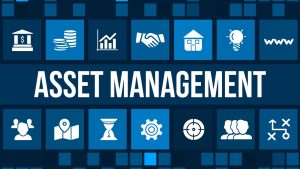Property managers often find themselves managing more than one property. They could be handling one entire apartment complex inclusive of multiple homes, or they could handle various resident houses in different parts of the country they are based in. Just for one home or apartment, the number of documentation a property manager needs to keep a record of is immense. This is to ensure they have everything in place in case something occurs. Whether it is a legal issue or concerns finances, for example, the only way to stay prepared for anything is to have an updated repository of essential documents in an organised manner. This blog will explain the type of documents property managers should keep a record of.
Why Document in the First Place?

On the one hand, documenting files is a way for property managers to confirm all transactions or communications between different people. This could be in documentation exchanged in interactions with tenants, owners and even maintenance crews. Having an official statement confirming something allows property managers to be better equipped for legal remedies, for instance, and to a certain extent, be of more use to tenants themselves.
On the other hand, documentation, especially those related to finances, allows managers to assess the financial viability annually. Having a record of this information is essential to monitor the property management company’s success and profitability.
Six Essential Documentation for Record Keeping

Property managers have to take note of multiple types of documents to keep a record here. Here are six of them:
Lease Agreements
A lease agreement refers to a standardised contractual agreement with the tenants. It is in this agreement that the agreement conditions of living in a specific home or apartment complex are noted. Where the property manager handles many homes, the number of contractual agreements they have to keep note of is multiple. Some contracts may have aspects exclusive to them. Hence, keeping a record of all contracts becomes essential. Generally, most contracts are made in their physical documentation format. This does not, however, mean that a digital copy should not be made. It also does not mean that specific contracts are now signed entirely digitally. Where the contact is physical documentation, storing it becomes important. In this respect, digital documentation allows property managers to have a backup in case. As a result, at the end of one’s tenancy, or whenever such an agreement is renewed, property managers can easily access the original agreement to see the rules that govern each aspect.
Tenant Files
Other than the lease agreement, other forms of tenant files that need to be secured include the tenant rent application, screening reports, correspondence regarding acceptance or rejection, security deposits, move-in inspection work and more. This could also contain documentation relating to pet policies, lease violations, eviction papers, and even correspondence with the tenant. The number of procedures and processes followed by tenants can be multiple, and a form of documentation is created for each such process. In a traditional context, this would mean that a property manager’s role would be extremely paper-intensive. Imagine having to handle more than one tenant – the number of physical storage it would have to accommodate would be enormous. Moreover, even the records of applicants who never got accepted must be stored. This is why digitalising records is more efficient. Simply upload everything into one system, and the relevant department can take note of the new record added without any hassle. This documentation will specifically be beneficial for discrimination claims made.
Financial Transactions
There are many financial transitions made within a property management business. From the tenant to the vendors to the owners, almost all parties involved in managing a property would have some form of financial responsibility to fulfil. But other than that, financial managers need to securely store documents related to bank statements, deposits, general ledgers or check registers, owner ledgers, tenant ledgers, personal funds ledgers, invoices and receipts, purchase orders and security deposit refunds and deductions made. Recording the relevant date and time is especially important in managing a property. This is imperative to completing taxes appropriately and is an important aspect of carrying out trust accounting compliance and meeting audits with no problem. Countries would further have regulations specifying the duration a property manager is allowed to keep financial records of the business. This requires the property managers to have a notification system in place to ensure that relevant documentation is destroyed appropriately, ensuring that no person’s safety is hindered.
Owner Details
Where the property manager is managing someone else’s property, it also requires them to have important information of the owner stored. This includes documents like the owner-manager agreement, request and approval of property maintenance, records of financial transactions, including the transfer of rental income to the owner, and more. As property managers can only manage the property of another, they need to do it according to the specific requirements set by the owner. Hence, even when a tenant requires something to be repaired, it must first go through a system of checks and approvals from the owner if required. Once again, storing such information is especially important for any impending legal disputes. Where the owner attempts to bring a dispute against a property manager, having a clear and detailed record of everything that took place between them and the home they manage for the owner would greatly help.
Vendor Details
Property managers may hire vendors to carry out repairs, for instance. Hence, files related to vendor screening, contracts, work order requests, bids, invoices, etc. This allows property managers to demonstrate that necessary precautions have been taken to hire a good vendor for repairs. Consequently, this sign can help a property manager gain the trust of their tenants whilst also contributing to the formation of building cordial relations with owners. Documenting all of these intricate details additionally helps property managers pay taxes and report miscellaneous income. It may also be beneficial in situations where the vendor has failed to take due diligence in carrying out its repairs or only doing faulty maintenance. In other words, where the vendor breaks contractual obligations, the property manager would have a clear timeline and case built by simply having a central system that maintains records of everything.
Business Documents
At the end of the day, it should not be forgotten that for most property managers, the role of managing a property is part of their business. This also means the typical documentation a company has to record is another document they must store. Hence, insurance documents, business licenses and permits, property management licenses of the relevant country, audit and employee records, and legal documentation play an important role. Without having these documents in an integrated platform, it could prevent you from successfully analysing and monitoring the company’s progress. Some of these documents literally require you to store them purely because it provides governmental approval for one person or company to manage multiple properties. In other words, many of these are legal requirements. Some localities require specific documents to actually be stored and specify how long they should be kept. They govern how sensitive information related to tenants or owners can be destroyed, requiring property managers to have a report that records appropriate measures that have been taken.
Keep All Your Important Documents in a Safe and Secure Space

A digital repository that organises your documents offers security and safety for the property manager and the tenants. It keeps everything transparent and is a solution that integrates all departments into one platform, allowing authorised personnel to access them promptly. It also makes it easy to streamline communication with different parties and guarantees sensitive information remains safe. This latter aspect, however, will greatly depend on the property management solution a person invests in.






